
Every hobby and profession develops a unique lingo, and it’s no different in the world of secondhand shopping.
As a professional thrift shopper and reseller for more than 30 years, I’ve noticed my “colleagues” and I have a language all our own — peppered with weird terms, abbreviations and acronyms.
And since Babbel offers no course to become fluent in thrift-shop-speak (what’s the hold-up, people?), allow me to translate. Following are a bunch of terms that will help you navigate the wonderful world of secondhand shopping and reselling.
1. In the wild

Gear up. “In the wild” refers to where a valuable secondhand item is found (and indirectly, the skill of the buyer). It takes a special knack to spot a treasure in the wilds of a thrift store or flea market as opposed to more civilized environments like high-end antique shops.
2. Honey hole
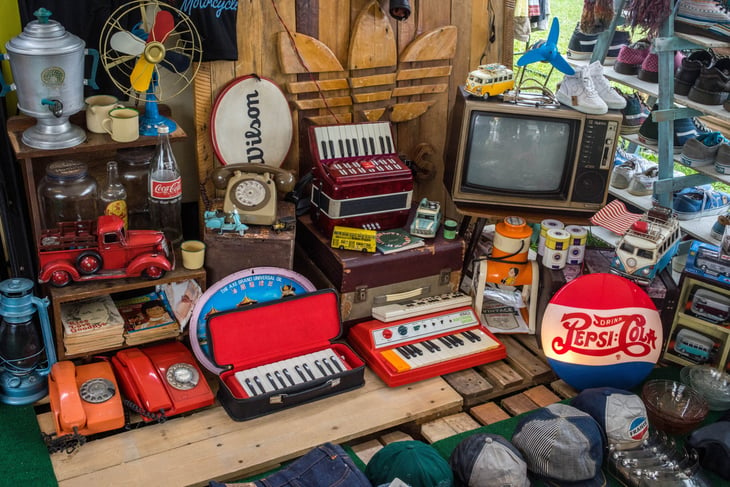
Spend enough time in the wild, and you’ll eventually stumble upon a “honey hole” — a spot where good finds are plentiful. Popularized by the TV show “American Pickers,” any thrift store, estate sale, yard sale, or junkyard can be a honey hole.
3. Toasty
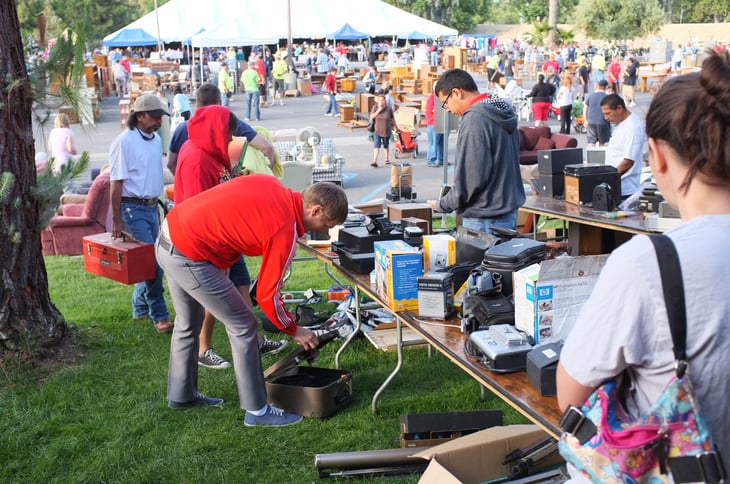
A secondhand item that’s “toasty” or “toasted” shows signs of heavy use or wear. To carry the metaphor one step further, toasty is slightly better than “fried” (an item so damaged that it’s lost all value).
4. Repop

The linguistically strange word “repop” refers to an item that’s been reproduced to mimic an original. For example, “That Coca-Cola sign isn’t an antique, it’s just a modern repop.”
5. Flea bite

When is a chip not a chip? When it’s a “flea bite” or “gnat bite.” On porcelain, pottery, and glass, both terms refer to the tiniest fleck of damage — not quite a chip, but still noticeable.
6. WYSIBI

Pronounced wai-SEE-bee, the acronym WYSIBI stands for “when you see it, buy it.” Thrift shoppers use the term to describe any item that’s rare, unusual, or highly sought-after. Another way to say, “don’t pass this up,” WYSIBI is a verb, noun and mantra all rolled into one.
7. BOLO

Borrowed from law enforcement, “BOLO” is shorthand for “be on the lookout.” But instead of hardened criminals, thrift shoppers are looking for hard-to-find treasures.
All products covered in my “Thrift Shop Like a Pro” series qualify as BOLOs, either because of their amazing quality or impressive resale value.
8. Start-the-car moment

Found an amazing item for a truly unbelievable price? Congratulations, you’re having a “start-the-car moment.” This adrenaline-fueled experience makes you want to check out quickly and get to the car before someone realizes their mistake.
9. Aunt Sally’s and Vinny’s
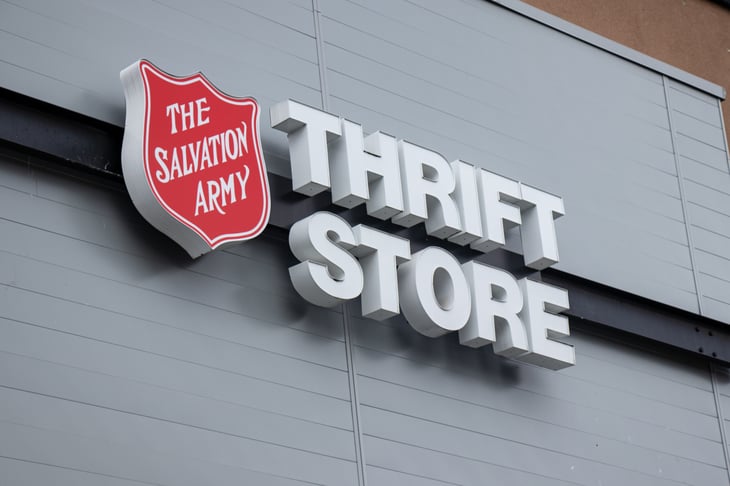
These terms of endearment are shorthand for two beloved thrift store chains — The Salvation Army and St. Vincent de Paul, respectively. I can’t tell you how many times I’ve overheard bargain-hunters say something like, “Oh, you like this jacket? I found it at my favorite boutique — Vinny’s!”
Reselling lingo

Not all thrift shoppers resell what they find, but those who do speak in a distinct dialect. Most terms were coined to help sellers communicate more clearly with online buyers.
But other words and phrases are simply verbal shorthand in what’s become a fast-paced, highly competitive field.
1. Picking
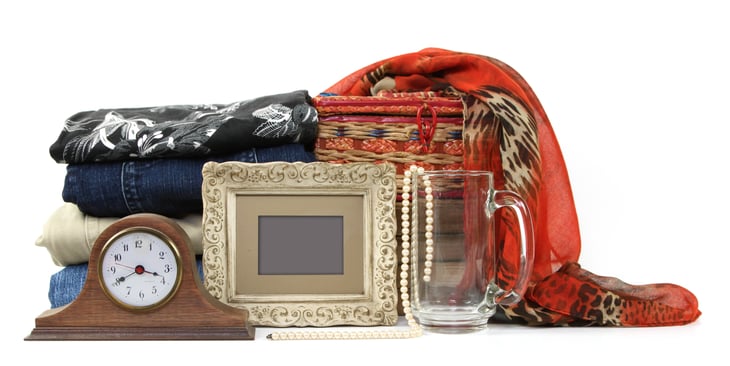
In the resale world, “picking” is similar to salvaging — pulling items of value from environments where they might otherwise be destined for a landfill. Successful picking requires a sharp eye and keen understanding of trends, market demand and value.
Pickers make money by “flipping” — selling their finds at a profit (often, several hundred times above the original “picked” price).
2. Meat on the bone

Another phrase popularized by “American Pickers,” this term refers to an item’s profit potential. If there’s no “meat on the bone,” there’s no room between the purchase price and the resale value to make a profit.
3. Deadstock
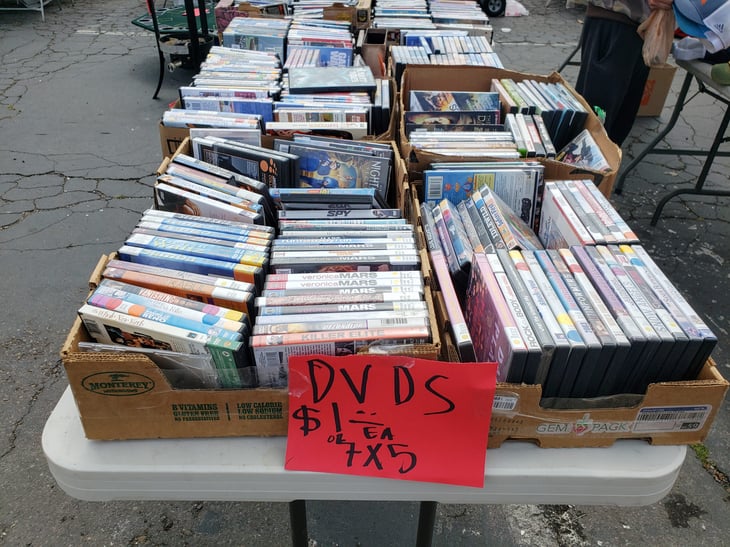
When retail products set on the shelf and don’t sell, they eventually become “deadstock.” Also called “New Old Stock” (NOS), these items are vintage, but pristine and still in their original packaging.
When businesses close, their deadstock items are often donated to thrift stores or sold in bulk at flea markets.
4. EUC
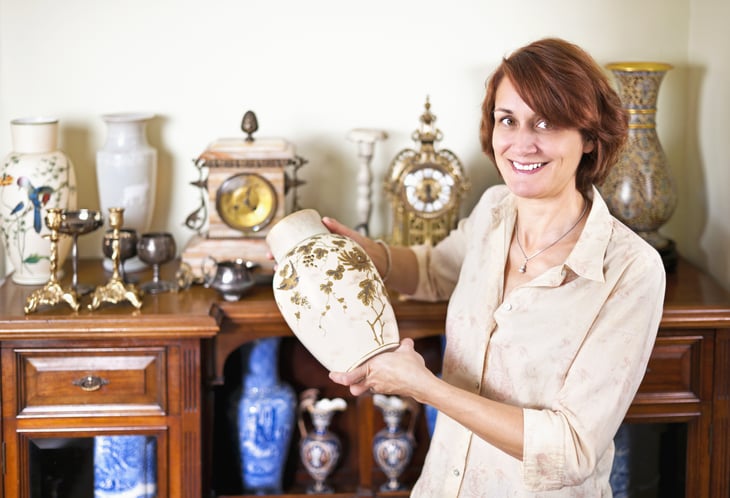
Vintage finds in top-notch shape are considered to be in “EUC” (excellent used condition). The term refers to any item that shows no signs of use, wear, or damage.
5. Spell-out
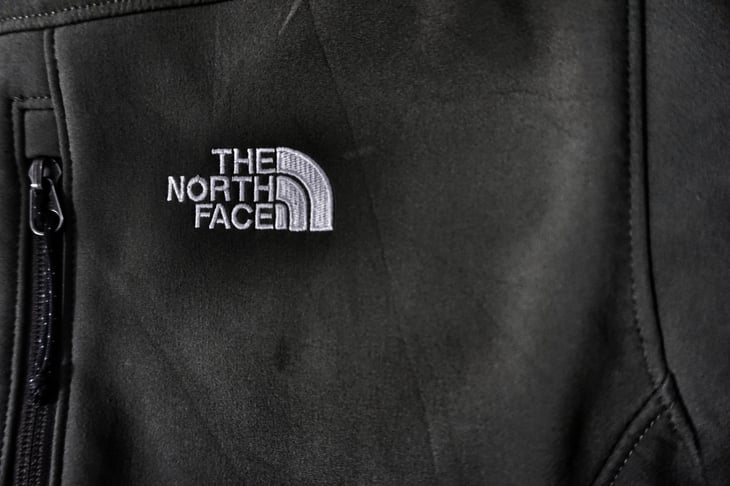
Remember those GAP sweatshirts with the super-sized G-A-P logo on the front? Those are a perfect example of “spell-outs.” The term describes any piece of apparel or luggage with a prominent brand, team, or franchise name, well … spelled out.
6. OOAK

This acronym stands for “one of a kind.” Resellers typically reserve “OOAK” to describe handmade goods, artwork and items that have been customized in some way.
